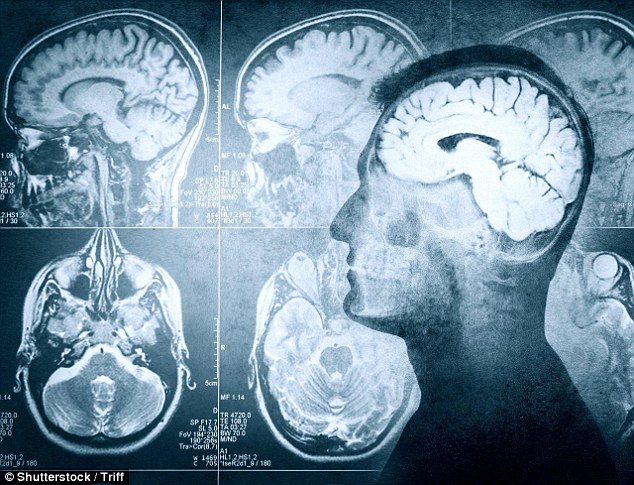A wave of electrical activity in our brains called ‘spreading depression’ appears to mark the final moment before death, researchers have found.
Experts examining brain activity in dying patients observed a flurry of activity that appears to precede the fatal shutdown of our most vital organ.
The finding suggests that consciousness may still be present for many minutes after the rest of the body has stopped showing signs of life.

A team of neurologists, including from the Charité–Universitätsmedizin Berlin, continuously monitored electrical signals in the brains of of nine people as they died.
Each of the patients – from Berlin, Germany, and Cincinnati, Ohio – had received fatal brain injuries and had ‘do not resuscitate’ orders.
Experts hoped that, by implanting electrodes in the brains of their test subjects, they could uncover the mechanisms and timing of events during the process of dying.
They found that even five minutes after a person’s heart stops beating their brain cells, or neurons, may still function.
But a wave of ‘spreading depression’ marked the moment that these neurons shutdown before their final, irreversible death.
In a written statement lead author Dr Jens Dreier of Universitätsmedizin Berlin said: ‘After circulatory arrest, spreading depolarization marks the loss of stored electrochemical energy in brain cells and the onset of toxic processes that eventually lead to death.
‘Importantly, it is reversible – up to a point – when the circulation is restored.’
Cells die when blood stops flowing, depriving them of the oxygen they need as fuel to function.

When this happens, brain cells draw on energy reserves for a few minutes before they shut down completely.
This happens when the mechanisms that neurons use to keep ions separated start to fail.
Ions are electrically charged particles formed when atoms lose or gain electrons.
The breakdown of the barriers between these particles releases a massive amount of electrochemical energy into the brain as neurons frantically attempt to draw in fuel.
This process, known as spreading depolarisation or spreading depression, is marked by hyperactivity in the neurons, followed by a sudden silence.
However, this silence only marks the final countdown to death and may be reversed for a period, researchers found.


Exactly how long this remains the case is still open to debate.
A final ‘wave’ of spreading depression seems to mark the point at which neurons have fired for the last time, although the research team warned that this may still be an unreliable marker for true death.
‘The chemical changes that lead to death begin with depolarization,’ Dr Jed Hartings of the University of University of Cincinnati’s College of Medicine and a member of the research team told Newsweek.
‘We’ve never had a method to diagnose brain death, and we don’t have a way to be certain when all capacity for awareness is lost.’
While the study doesn’t have a direct effect on patient care today, it may lead to improved diagnostic and treatment procedures in the future.
The findings may be helpful for developing strategies for dealing with cardiac arrest and stroke that complement efforts to reestablish circulation.
They may also inform the debate on organ donation after cardio death, where death is declared between two and ten minutes after the heart stops beating.
The full findings were published in the journal Annals of Neurology.












